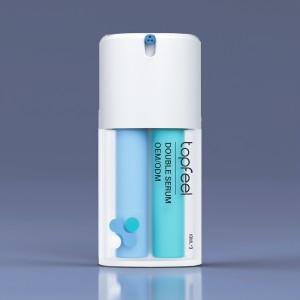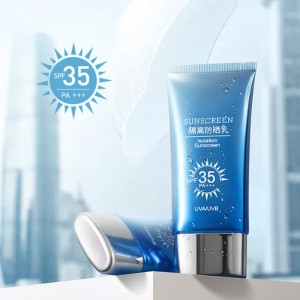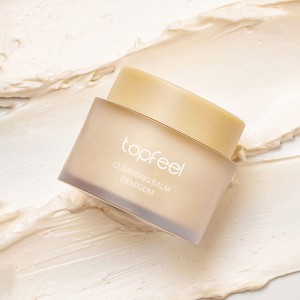As the weather gets cooler, many friends are once again troubled by the change of seasons: their skin will suffer from dryness, flaking, itching and many other sensitive symptoms. Why does skin have problems as soon as autumn comes? How should we deal with skin sensitivity problems that arise during the change of seasons?
The skin is sensitive during the changing seasons and is more likely to become itchy. There are three main reasons:
1. The temperature difference between day and night becomes larger
There is a large temperature difference between day and night in autumn and winter, with temperatures cooling at night and heating up during the day. As the temperature drops and rises, the relative humidity of the air will decrease, and the relative humidity will decrease. As a result, our skin loses moisture at an increased rate, making it more susceptible to dryness and itchiness.
2. Skin’s own stress response
Our skin will also have some stress reactions when the seasons change. This reaction may be innate in evolution. If the skin's adaptability is weak, this stress response will be amplified when environmental factors change drastically, and therefore we will feel uncomfortable with the skin condition.
3. Excessive skin care
We have always emphasized that we should not overdo skin care, including overly complex skin care procedures, excessive techniques, and excessive force. Over-cleansing, over-exfoliation, over-masking, etc. can damage the skin barrier and make the skin more sensitive.
Skin care in the fall and winter needs to focus more on moisturizing and protecting the skin from the damage of cold, dry climates. Here are some scientific skin care suggestions:
1. Gentle cleansing: Choose a cleansing product that is gentle and does not contain irritating ingredients. Avoid using cleansing products that are too strong to avoid stripping the skin of its natural oils. Cleanse skin thoroughly at night to remove dirt and makeup. At present, the first choice for milder facial cleansers is amino acids, which will not take away too much skin oil while cleaning normally, and are very suitable for daily cleansing of dry and sensitive skin. If the allergic symptoms are severe, it is best not to use facial cleanser and just wash your face with warm water.
2. Moisturizing is key: Choose skin care products that are rich in moisturizing ingredients, including creams, lotions and masks. Ingredients like hyaluronic acid, glycerin, squalane, and more can help lock in moisture and prevent skin from drying out.
3. Lip balm: Use lip balm containing moisturizing ingredients (such as vitamin E, lip oil) to prevent lips from chapped and peeling.
4. Sunscreen: Even in the fall and winter, continue to use sunscreen. While the sun may not be as intense, UV rays are still present and can cause skin aging and damage.
5. Avoid overheating and excessive bathing: Soaking in hot water for a long time may cause the skin to lose water, so try to avoid overheating showers and baths. At the same time, reduce the number of frequent baths to avoid washing away the skin's natural protective layer.
6. Exfoliate regularly: You also need to exfoliate regularly in autumn and winter to remove aging keratin cells and promote the growth of new cells. Choose a gentle exfoliant and don't over-exfoliate to avoid damaging the skin barrier.
7. Diet and Hydration: A balanced diet and adequate fluid intake are essential for skin health. Eating foods rich in vitamins C, E and antioxidants, such as fruits, vegetables and nuts, can help maintain healthy skin.
Remember, skin care is an individualized process and should be tailored to your skin type and needs. Different people's skin may require different care, so it's important to tailor your skin care routine and products to your individual needs.
Post time: Sep-22-2023





